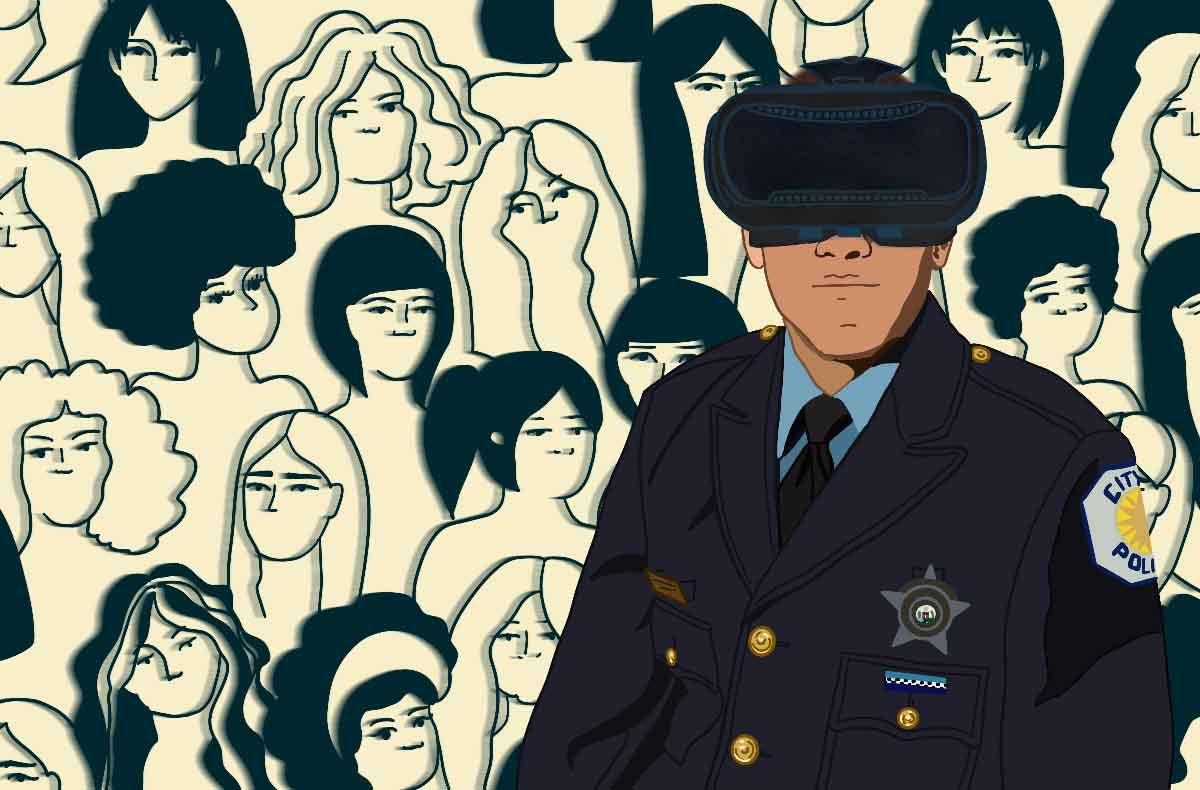
Illustration by Nikki Muller
In light of International Women’s Day today and the upcoming two-year anniversary of the Atlanta spa shootings that left seven women dead, it’s imperative that we approach the pervasive problem of gender-based violence with a holistic, multi-pronged approach.
According to the World Health Organization one in three women have experienced physical and/or sexual violence at some point in their lives, with younger women having greater risk. Two in three victims of intimate partner/family-related homicide are women.
The COVID-19 pandemic exacerbated domestic violence, creating a shadow pandemic with particular increase in intimate partner violence. In fact, researchers refer to the period since early 2020 as a double pandemic.
Addressing the “shadow pandemic”
My collaboration partners from the University of Miami Human Rights Clinic founded the COURAGE Initiative (Community Oriented and United Responses to Address Gender Violence and Equality) specifically to address and improve overall response to gender-based violence. The team includes Caroline Bettinger-Lopez, who is currently serving as senior adviser on gender and equality in the U.S. Department of Justice after serving as Senior Advisor to the White House Gender Policy Council in 2021.
Their COURAGE in Policing Project specifically works to enhance law enforcement response to domestic violence and sexual assault, in partnership with community-based organizations, police departments, and national leaders—as well as design and technology experts, such as myself.
Law enforcement response is critical to violence prevention, as domestic and sexual violence calls for service comprise the majority of 911 calls to many police departments, and these 911 calls are among the most dangerous assignments for responding officers.
Some might be surprised to learn that emerging technology can play a critical role in turning the tide in law enforcement training, and therefore response to gender-based violence incidents. Despite virtual reality’s reputation for being used for immersive games and entertainment purposes, virtual reality training experiences have proven effective in improving decision-making skills, eliciting empathy, and creating an emotional connection between the trainee and the materials in many domains, including interviewing victims.
I’m currently leading a team from DePaul University researching and designing a virtual reality training solution for officers to learn and embody best practices, in order to improve outcomes for victims when reporting sexual and domestic violence incidents to law enforcement.
A Just Reality is a virtual reality simulation which fills a major gap in essential skills training for when law enforcement must respond and investigate sexual assault and domestic violence incidents. Though commonly referred to as “soft skills,” rapport building and communication are crucial abilities that significantly impact outcomes of this type of interaction—and far too few officers are properly trained to handle such interviews.
Gaps in law enforcement training
Law enforcement has a responsibility to keep people and communities safe from violence. And yet the sad truth is that victims of gender-based violence often are met with skepticism, hostility, neglect, and accusatory victim-blaming behaviors when reporting such crimes.
The likelihood that a victim’s credibility will be questioned increases when the person is a member of a marginalized community. Antagonistic treatment, including but not limited to blaming a victim’s clothing and/or alcohol consumption, poses a significant barrier and threat to the victim’s ability to not only receive legal justice, but to be heard and believed and not further traumatized.
A key to reducing incidents is to empower and truly hear the voices of victims, while considering the impact of trauma on one’s neurobiology, independently and ahead of prosecuting the assailant. Without this trust, victims will not report and such crime will persist with repeat assailants.
An innovative way to improve police response
Our research and development process began with interviewing experienced members of law enforcement, human rights lawyers and victim advocates. We have since created a first scenario: using a Meta Quest 2 virtual reality headset, participants speak aloud to the victim, choosing from a fixed number of dialogue options.
Depending on their selection, the participant may continue down a best practices path, building rapport and communicating compassion and patience—or a less or not recommended path of using victim-blaming language and leading questions.
Participants get periodic feedback on some dialogue choices throughout the experience, and at the end they receive scores and qualitative feedback on five areas: empathy, active listening, interviewing, professionalism and trust.
By providing an interactive scenario where participants interview an emotive avatar in virtual reality, officers can learn to avoid biased language and practice victim-centered and trauma-informed techniques when interacting with those reporting gender-based violence.
Such training is beneficial for the ease of consistent training across participants, as well as its ability to scale up without losing the quality of the training, or burdening a limited number of qualified people to repeatedly roleplay as the victim.
After receiving critical feedback on this first scenario from officers as well as victim and human rights advocates, we are now working on additional scenarios representing a spectrum of intersectional identities and nuanced circumstances.
International Women’s Day is about working toward a gender equal world—free of bias, stereotypes, and discrimination. A world that’s diverse, equitable and inclusive. It is our job to use our creativity, drive, and innovative spirit to envision ways to move us collectively towards this better future.
While VR and games can offer an entertaining escape from reality, some of their greatest untapped power lies in using them to learn effective practices we can bring into the real world.
By helping law enforcement learn better ways of responding, virtual reality can be an innovative tool for fighting gender-based violence, ultimately supporting victims by strengthening their voices and ideally reducing harm and overall incidents of violence.

